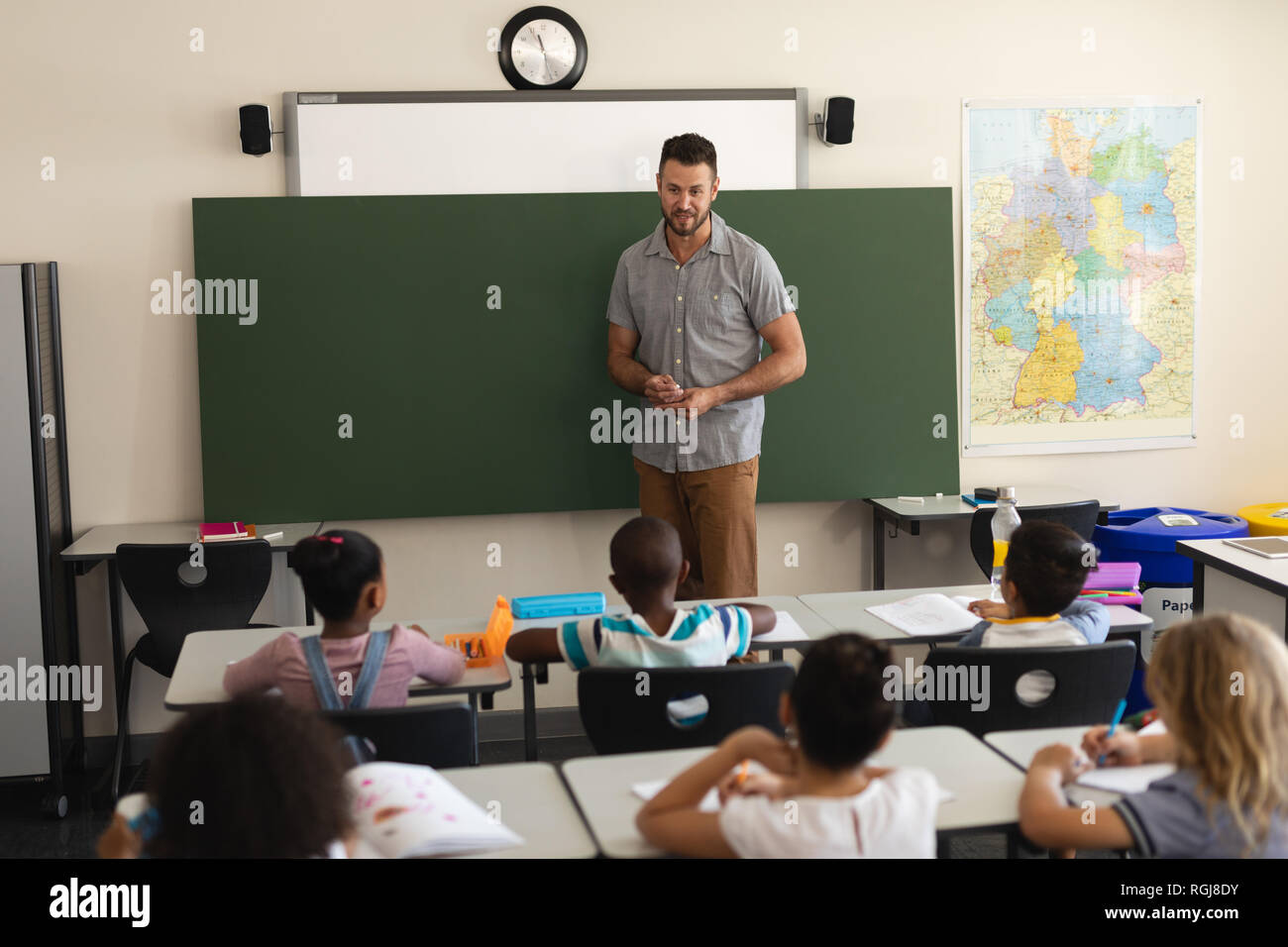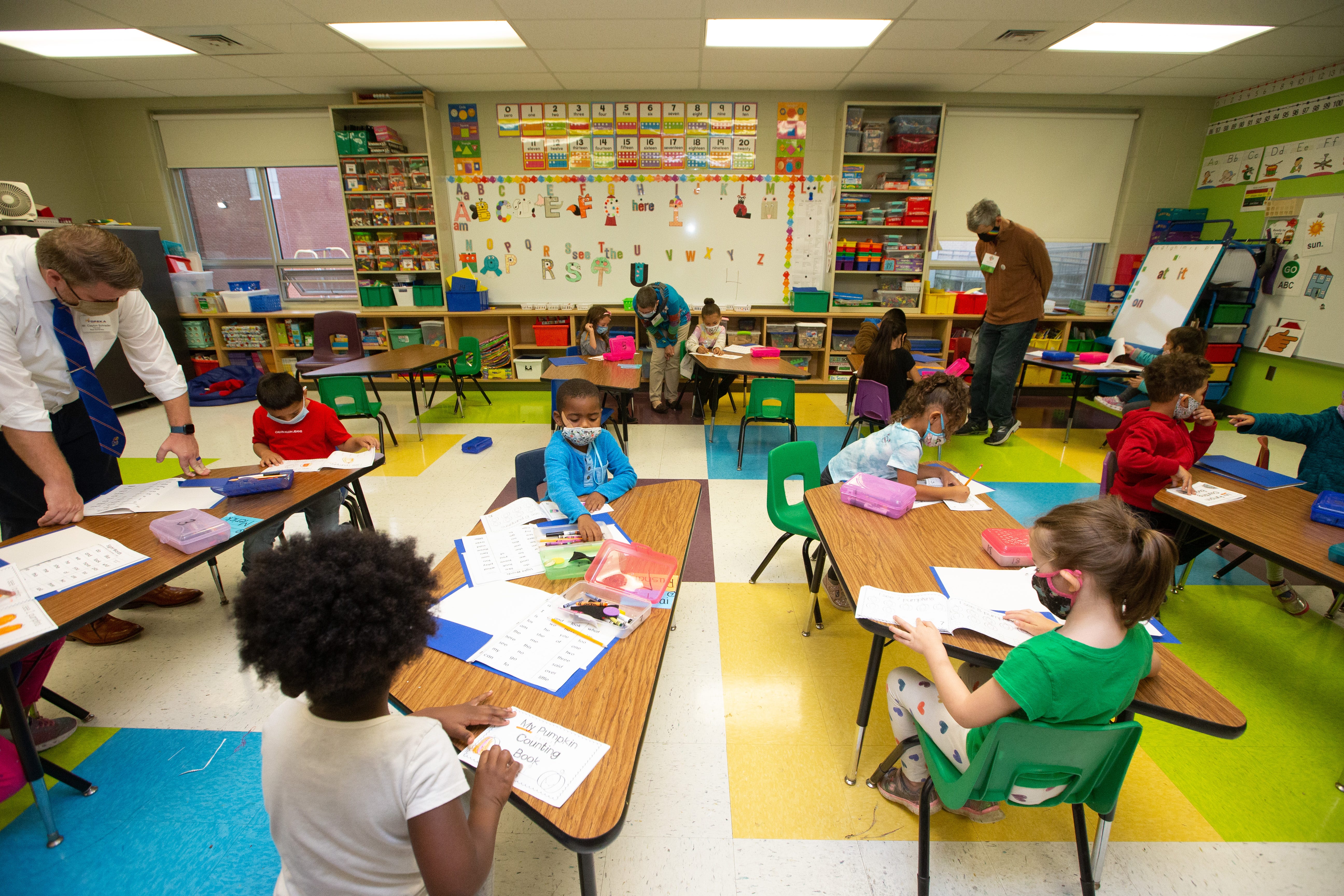Enroll in Primary Science Tuition Singapore for a Strong Science Foundation
Enroll in Primary Science Tuition Singapore for a Strong Science Foundation
Blog Article
A Comprehensive Guide to the Numerous Knowing Methods in Key Science Guideline
The expedition of diverse learning techniques in main scientific research instruction offers a possibility for educators to improve student interaction and comprehension substantially. By analyzing hands-on knowing strategies, inquiry-based methods, and joint approaches, we can identify reliable techniques that provide to various discovering designs.

Hands-On Understanding Techniques
Hands-on knowing strategies play an essential duty in main science instruction, engaging pupils in active exploration and experimentation. These approaches allow students to interact directly with sensations and materials, fostering a much deeper understanding of clinical ideas. By utilizing manipulatives, designs, and real-life experiments, instructors create an environment where trainees can observe, hypothesize, and evaluate their ideas.
Such techniques not just enhance comprehension however likewise cultivate essential thinking and analytical skills. When students get involved in activities like developing straightforward equipments, growing seeds, or carrying out chain reactions, they are urged to ask questions and look for answers through their very own observations. This experiential approach assists to demystify complex clinical principles, making them extra relatable and available.
Furthermore, hands-on knowing advertises collaboration amongst peers, as students usually operate in teams to carry out experiments or share searchings for. This synergy not only improves their learning experience however likewise creates important social skills. Ultimately, integrating hands-on methods in primary science direction promotes a long-lasting love of discovering and interest regarding the natural globe, laying a strong structure for future academic pursuits in science and beyond.
Inquiry-Based Discovering
Inquiry-based learning is an instructional method that encourages students to ask questions, check out phenomena, and create their very own understanding of scientific ideas. This technique moves the focus from conventional teacher-led direction to a much more student-centered experience, where learners take the campaign in their academic journey. By promoting interest, inquiry-based discovering promotes deeper engagement with the product, permitting pupils to explore topics in a purposeful context.
In technique, this approach usually entails hands-on experiments, monitorings, and critical thinking tasks that align very closely with the clinical method. Students are encouraged to formulate hypotheses, layout investigations, and analyze data, which grows essential skills such as problem-solving and logical reasoning. The role of the instructor in this framework is to assist in exploration, directing pupils through the inquiry process while urging independent thought and partnership.
In addition, inquiry-based knowing supports a sense of ownership over the understanding process, inspiring trainees to go after knowledge proactively. This approach not only improves understanding of clinical ideas however also promotes a long-lasting love for understanding, furnishing pupils with the abilities essential to browse a significantly complicated world.
Collaborative Discovering Approaches
Joint understanding methods encourage trainees to engage in significant interactions with peers, fostering a shared obligation for their educational end results. In main science guideline, these strategies motivate students to interact to explore scientific principles, fix troubles, and perform experiments (primary science tuition Singapore). By taking part in group activities, pupils can take advantage of diverse perspectives, permitting richer understanding and retention of clinical knowledge
One secret aspect of collaborative discovering is the focus on communication skills. Trainees should verbalize their thoughts, pay attention proactively to More Info others, and negotiate concepts, all of visit their website which are crucial proficiencies in both real-world and scholastic contexts. This social communication not just boosts their understanding of scientific principles but likewise promotes teamwork and conflict resolution abilities.
When students see the worth of their payments within a group, they are extra likely to take ownership of their learning trip. On the whole, integrating joint discovering techniques in main science instruction cultivates a vibrant discovering atmosphere that prepares students for future scholastic and social difficulties.
Technology Integration in Scientific Research
The integration of innovation in primary science guideline boosts discovering experiences by supplying ingenious devices and resources that support various mentor methodologies, including joint understanding - primary science tuition Singapore. Making use of electronic systems, simulations, and interactive applications permits pupils to involve deeply with clinical principles, assisting in an extra hands-on method to knowing
Digital labs, as an example, allow students to carry out experiments safely and efficiently, advertising inquiry-based discovering. These tools can simulate real-world scientific circumstances, enabling students to imagine intricate processes that would certainly be challenging to duplicate in a standard classroom setup. Additionally, innovation promotes interaction and partnership among pupils, as they can share findings and function together on jobs with on the internet platforms.
Additionally, multimedia presentations and academic video clips can enhance lessons by satisfying diverse knowing designs, making abstract concepts extra obtainable. Information analysis devices additionally equip students to collect and analyze clinical data, reinforcing crucial thinking skills. On the whole, the tactical incorporation of innovation in primary scientific research guideline not just enhances involvement but likewise prepares trainees for a technically sophisticated society, outfitting them with vital abilities for future scientific endeavors.
Differentiated Instruction Techniques
Separated instruction strategies are important for dealing with the varied requirements of students in primary scientific research education and learning. These techniques enable instructors to tailor their mentor approaches to suit varying abilities, passions, and discovering designs within the classroom. By employing separated direction, educators can create an inclusive environment that cultivates engagement and improves understanding of clinical ideas.
One efficient approach is to make use of adaptable organizing, which permits pupils to collaborate with peers at comparable ability degrees or with differing perspectives. This method encourages peer discovering and advertises essential reasoning. Additionally, offering selections in assignments can empower pupils, allowing them to pick jobs that reverberate with their passions while still fulfilling curricular objectives.
Moreover, incorporating tiered jobs is one more beneficial technique. Deliberately tasks with varying degrees of intricacy, teachers can make sure that all trainees are properly tested, regardless of their her response proficiency. Utilizing developmental assessments to determine recognizing further makes it possible for teachers to change their educational approaches dynamically, making sure that each student obtains the assistance they need.
Eventually, applying distinguished guideline approaches in primary scientific research education not just enhances pupil understanding outcomes yet additionally cultivates a passion for scientific research, preparing trainees for future scholastic searches.

Conclusion
In summary, efficient key scientific research instruction requires a multifaceted approach that includes hands-on understanding, inquiry-based techniques, and collective strategies. The integration of technology and set apart guideline better satisfies diverse knowing designs, cultivating an atmosphere helpful to exploration and important reasoning. By carrying out these methods, educators can enhance pupil engagement and understanding, inevitably nurturing a long-lasting interest for scientific research and questions. Such thorough techniques are necessary for developing educated and curious future scientists.
The exploration of varied understanding approaches in primary scientific research instruction presents a possibility for instructors to boost trainee involvement and understanding substantially.Hands-on understanding strategies play a critical duty in primary science guideline, involving trainees in energetic expedition and testing.Inquiry-based knowing is an educational approach that motivates trainees to ask concerns, examine phenomena, and construct their very own understanding of scientific principles.Joint learning strategies equip students to engage in significant communications with peers, promoting a common obligation for their instructional results. Generally, including collective understanding strategies in primary scientific research direction grows a vibrant discovering atmosphere that prepares students for future scholastic and social challenges.
Report this page